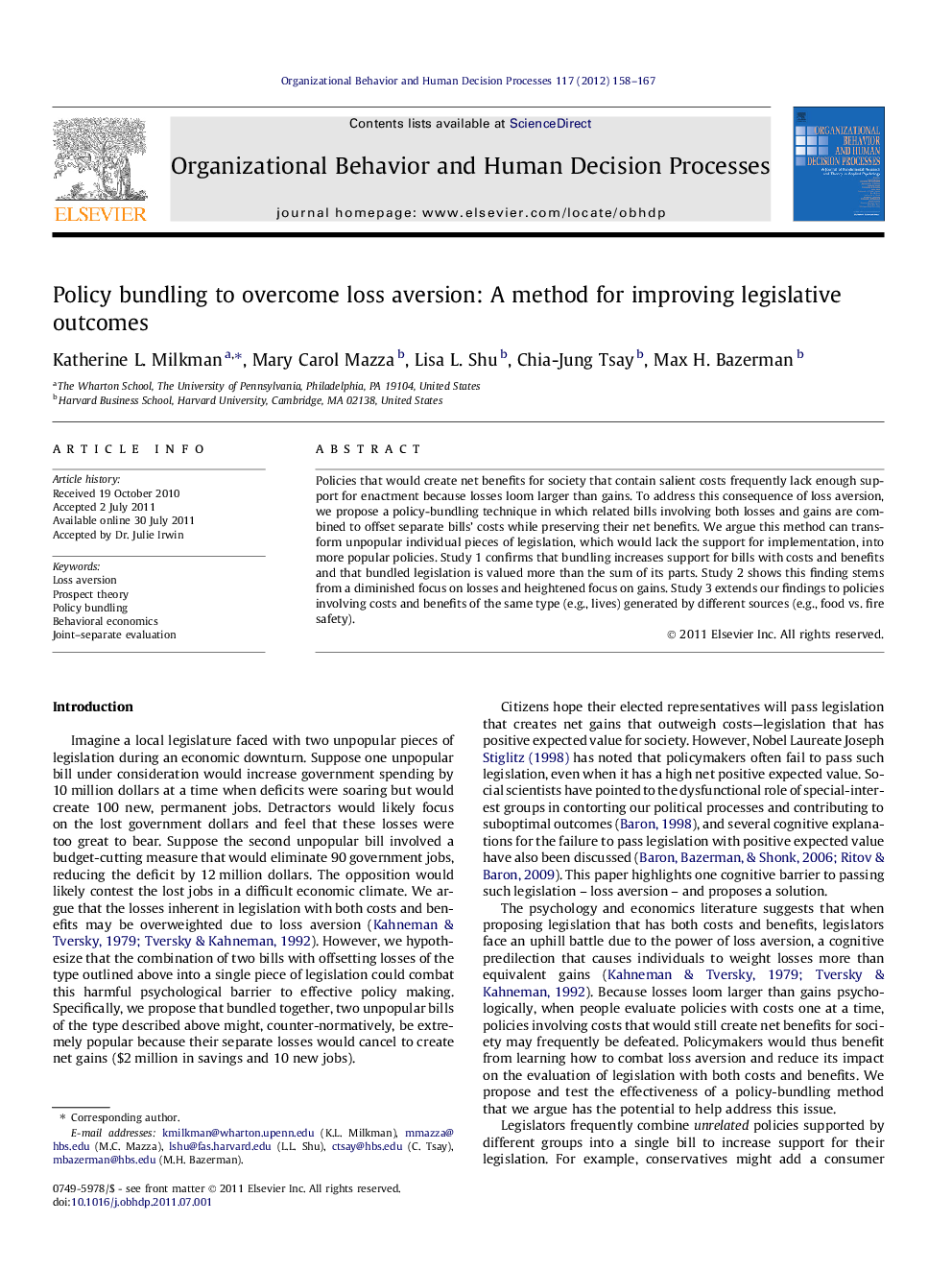| Article ID | Journal | Published Year | Pages | File Type |
|---|---|---|---|---|
| 888716 | Organizational Behavior and Human Decision Processes | 2012 | 10 Pages |
Policies that would create net benefits for society that contain salient costs frequently lack enough support for enactment because losses loom larger than gains. To address this consequence of loss aversion, we propose a policy-bundling technique in which related bills involving both losses and gains are combined to offset separate bills’ costs while preserving their net benefits. We argue this method can transform unpopular individual pieces of legislation, which would lack the support for implementation, into more popular policies. Study 1 confirms that bundling increases support for bills with costs and benefits and that bundled legislation is valued more than the sum of its parts. Study 2 shows this finding stems from a diminished focus on losses and heightened focus on gains. Study 3 extends our findings to policies involving costs and benefits of the same type (e.g., lives) generated by different sources (e.g., food vs. fire safety).
► We propose a policy-bundling technique to counteract the effects of loss aversion. ► Our technique combines related policies with offsetting costs and net benefits. ► We show that bundling increases support for policies with both costs and benefits. ► We show that bundled policies are valued more than the sum of their parts.
